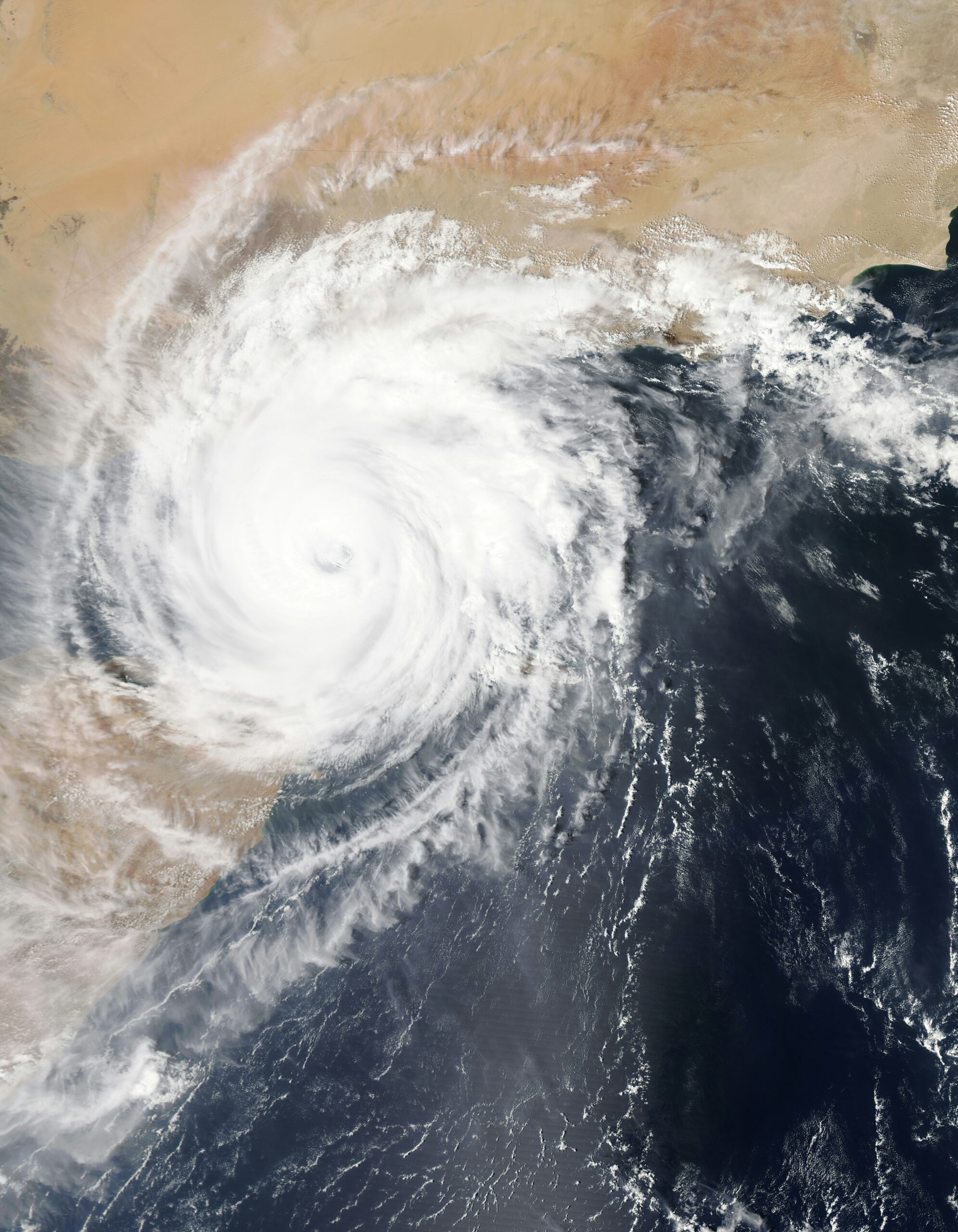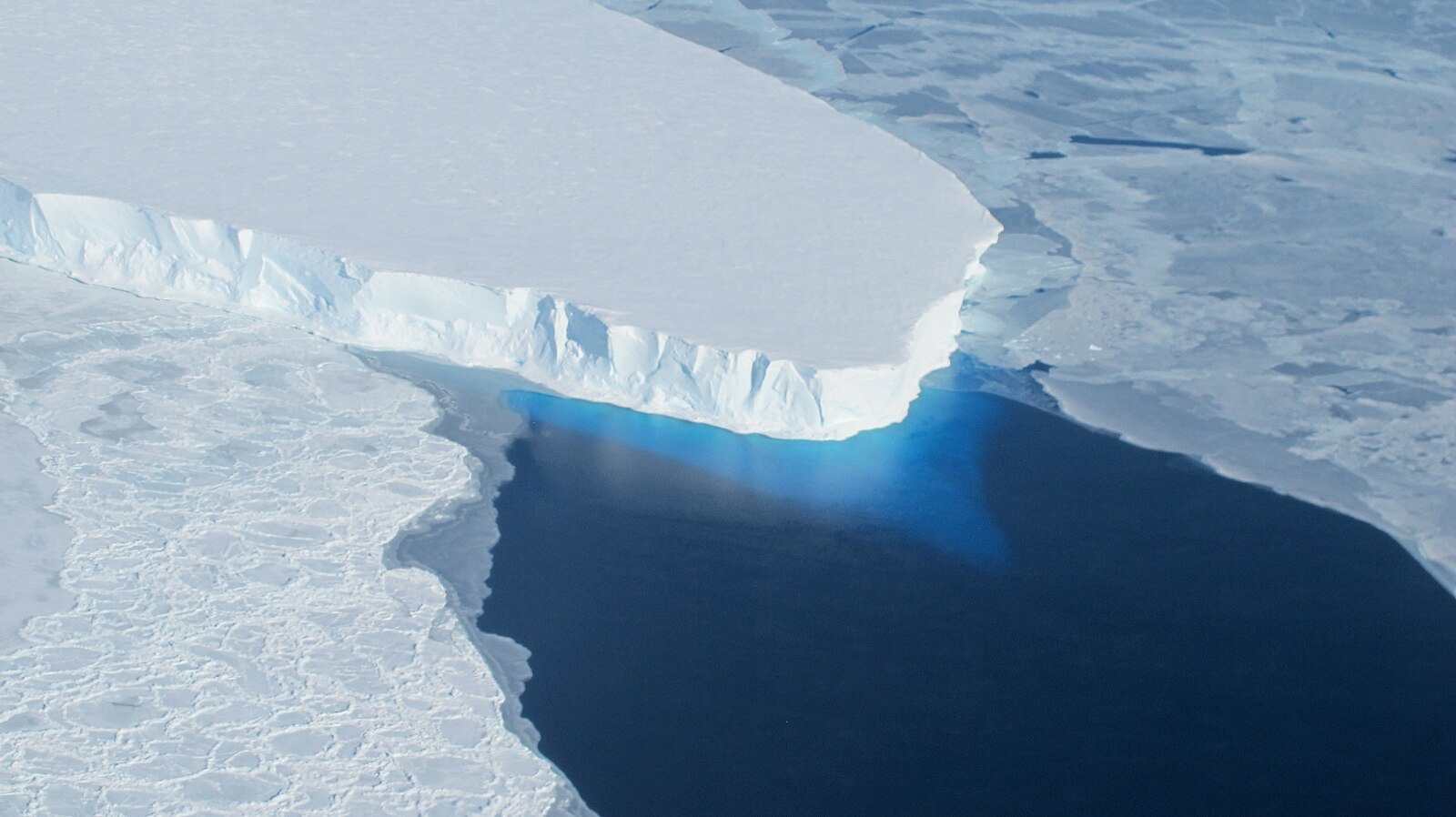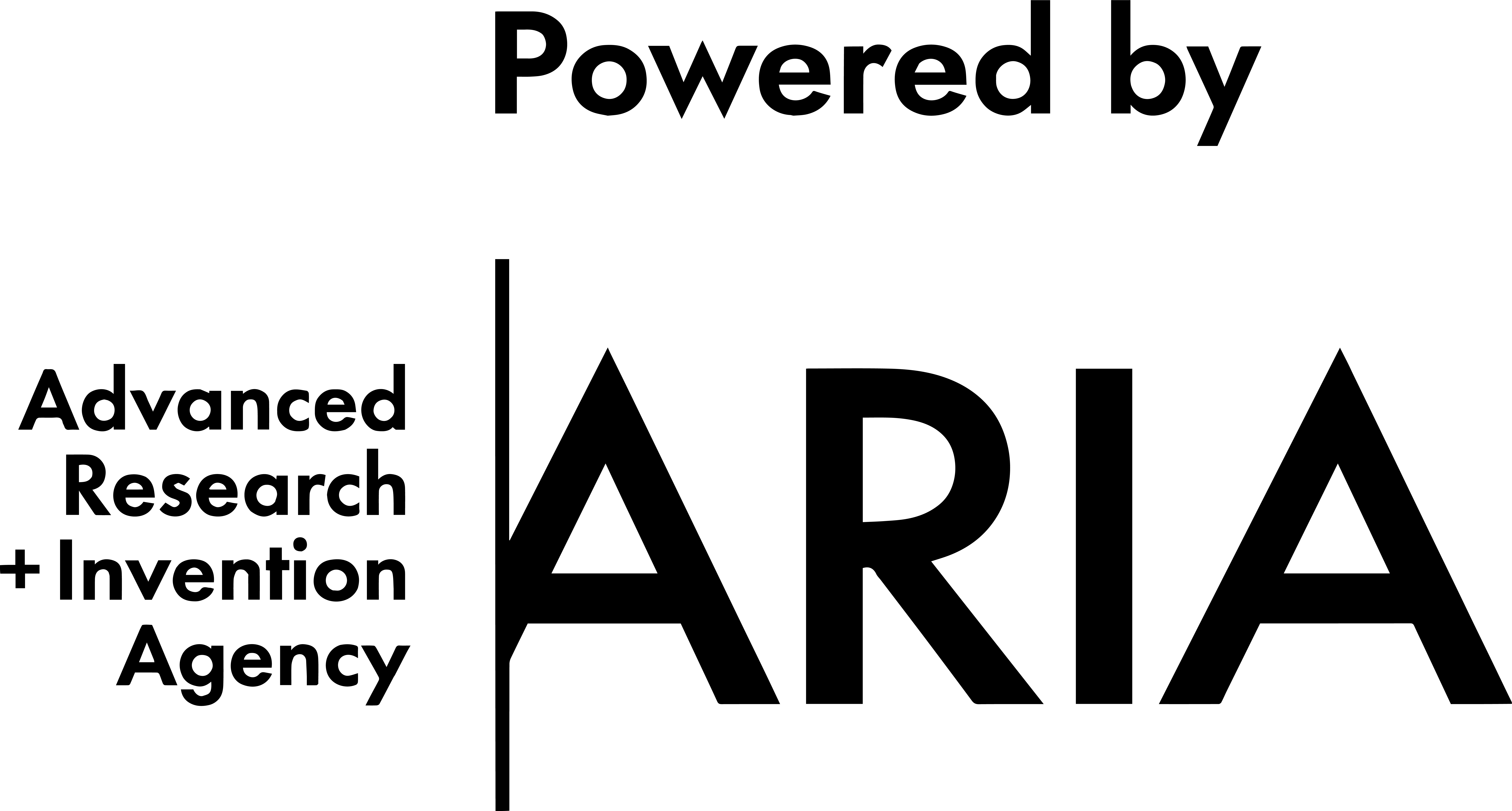Introducing the ARC Initiative – Advanced Research for Climate Emergencies
We are excited to officially launch the ARC initiative at Renaissance Philanthropy, a new philanthropic fund dedicated to advancing transparent, high-impact R&D aimed at predicting, preventing, and preparing for catastrophic climate risks.
May 12, 2025


Today, we are excited to officially launch the ARC initiative at Renaissance Philanthropy, a new philanthropic fund dedicated to advancing transparent, high-impact R&D aimed at predicting, preventing, and preparing for catastrophic climate risks.
The case for ARC: we need more options
The ARC concept has come a long way since we laid out an early version of the idea a year ago, in a blog post titled “Advanced Research for Climate Emergencies: The World Needs an ARPA for Climate, Just Not the One We Thought.” We argued that existing institutions are not equipped to grapple with the unique and urgent challenges of catastrophic climate risk, and that philanthropy can and should step in to fill that critical gap. In the time since publishing that piece, we got to work piloting the ARC concept by supporting a growing portfolio of research initiatives designed to tackle a variety of high-consequence climate risks, and we’re really only just getting started.
As we noted then, scientists have raised alarms for decades about climate tipping points and the potentially massive threats they pose to humanity. The World Scientists’ Warning of a Climate Emergency (2019), signed by over 15,000 scientists, emphasized the need for bold action, recognizing that mitigation alone is insufficient. Now, those warnings are materializing. Glaciers are melting ahead of schedule. Arctic permafrost is thawing. Coral reefs are collapsing. Earth’s major systems – from ocean currents to atmospheric circulation – are destabilizing. While it is imperative that we continue to drive progress on reducing emissions and expanding carbon removal as the only long-term sustainable pathway to a safe climate future, the possibility of crossing any number of these critical thresholds in the near future means that humanity is dangerously unprepared.

One urgent example: the Atlantic Meridional Overturning Circulation (AMOC), a critical global climate regulator, is showing signs of decline. Hundreds of scientists recently signed an open letter to the Nordic Council of Ministers calling for emergency action to prepare for its potential collapse, warning of “abrupt climate shifts” that could have devastating and irreversible consequences for generations.
The reality is simple and urgent: we need better tools to understand and manage catastrophic climate risks. Whether it’s stabilizing ice sheets, protecting ocean ecosystems, slowing Arctic warming, or preparing society for cascading failures, the world needs science-backed, actionable options before the next crisis hits. We must de-risk and validate these options before society faces the impossible choice between doing nothing and deploying untested, poorly understood solutions in moments of desperation. This is the mission of ARC.
The moral hazard of catastrophic acceptance
Core to ARC’s mission and organizational DNA is addressing the lack of serious, proactive strategies to prevent the most catastrophic forms of loss. The prevailing vision for the climate future implicitly or explicitly accepts an extraordinary level of “loss and damage”. Even under optimistic scenarios like 2°C of warming (and “smart money” is now betting on 3°C or higher), the world is bracing for widespread suffering: lives lost, places erased, populations displaced, ecosystems collapsed. Within the UNFCCC framework, this is categorized as “loss and damage” – a term that has come to encompass all the harms that go beyond what people and systems can adapt to. Loss and damage is estimated to cost $400B per year in the coming decades, though current commitments from wealthy nations to the loss and damage fund are only a small fraction of that amount.
This “loss and damage” framing is dangerously inadequate. It treats the most catastrophic outcomes as inevitable, and by doing so, discourages investment in the kinds of action that could actually prevent them. That is the true moral hazard: by accepting large-scale climate loss as a given, we foreclose the possibility of saving what still could be saved.

Our vision: a future without catastrophic loss
Our long‑term vision is a future where catastrophic climate risks are taken seriously and addressed head‑on – scientifically, politically, and morally. Where society invests early in the ability to predict, prevent, and prepare for tipping points and extreme climate feedbacks. A future without catastrophic “loss and damage” where the vast majority of the impacts of climate change can in fact be accommodated through adaptation, as part of an ambitious effort to preserve life, protect ecosystems, and avoid irreversible destruction – especially for the most vulnerable.
This vision requires foresight, responsibility, and a willingness to act on threats that are complex, uncertain, and politically inconvenient. It’s also a vision grounded in common sense and courage: that with the right tools and the right knowledge, the worst outcomes are not inevitable.
True to our pro-active vision, ARC is already supporting a growing portfolio of ambitious, expert-led projects that address catastrophic climate risks across four focus areas: (1) Preventing Catastrophic Sea-Level Rise; (2) Mitigating the Risks of Climate Overshoot; (3) Restoring Ocean Balance & Ecosystems; and (4) Building Resilience for Climate Emergencies.
ARC’s current portfolio of projects we support includes:
Arctic Climate Emergency Response (ACER) Initiative
Led by Charlotte DeWald, PhD
Developing scientific and technological options to slow Arctic warming and mitigate high-risk tipping points such as Greenland ice melt, permafrost thaw, and sea ice loss before they become irreversible.
Arête Glacier Initiative
Led by Brent Minchew, PhD, and Lauren Mahle
Closing critical knowledge gaps on West Antarctica’s destabilizing glaciers and exploring safe intervention strategies to prevent multi-meter sea-level rise.
Tracking Tropospheric Sulfur
Led by Colleen Golja, PhD, Christina Last, and Carla Roesch, PhD
Building tools to track and model warming driven by declining sulfur pollution, which currently masks a significant portion of global heating.
Undercurrent
Co-led by Lea Eaton, Lauren Kettle, Kelly Kinetic, and Shaun Kinetic
Developing reflective microbubble technology to reduce ocean surface temperatures and protect coral reefs from mass bleaching.
Inland Sea Reflooding
Led by Amir AghaKouchak, PhD
Exploring the potential of reflooding inland depressions, like Egypt’s Qattara Depression, to offset sea-level rise while providing regional climate and economic co-benefits.
Planning for Catastrophic Climate Risks
Led by Luke Kemp, PhD
Creating transparent risk frameworks and decision tools to help policymakers prepare for extreme climate scenarios under deep uncertainty.
AI-Powered Social Science for Climate Emergencies Research
Led by Allegra Cohen, PhD
Leveraging AI to identify the social, political, and institutional barriers to advancing research on climate emergencies and inform smarter engagement strategies.
The Climate Emergencies Resilience Lab
In partnership with Deep Science Ventures, we’re identifying venture-scale opportunities to prevent cascading societal failures triggered by extreme climate shocks.
Carbon Removal as a National Security Imperative
Led by Noah Deich
Reframing carbon removal as critical infrastructure for national security and developing strategies to align policy and financing accordingly.
Enhancing Global South Capacity to Address Climate Emergencies
Led by Rose Mutiso, PhD
Expanding Global South leadership in climate intervention research and governance through partnership with African Tech Futures Lab.
You can learn more about our ARPA-inspired model and our current set of projects here.
We’re proud to stand alongside The Bernard and Anne Spitzer Charitable Trust, the Navigation Fund, and Outlier Projects as inaugural philanthropic partners.

Climate Emergencies Forum (CEF)
Finally, as an ARIA Activation Partner, Renaissance Philanthropy is developing the ‘UK Horizons Programme‘ to help supercharge the UK’s R&D ecosystem. ARIA’s pioneering investment in climate emergencies includes two major programs aimed at predicting and mitigating catastrophic climate tipping points. We are working with ARIA to ensure that research to tackle critical climate risks is developed responsibly, safely, and effectively. In particular, we will align ARC efforts in translational R&D in prediction, prevention, and preparedness—sharing learnings and best practices and mobilising philanthropic capital with transparency and urgency. Also powered by ARIA, RenPhil is launching the complementary Climate Emergencies Forum (CEF). CEF convenes scientists, policymakers, NGOs, investors, and industries focussed on risk distribution like insurance and finance, across traditional silos, to drive greater awareness, coordination, and funding. Without a concerted effort to create strong, governance-ready institutions, even the best R&D will not be enough to mitigate catastrophic risks.

You may also be curious what other scientists and experts in the field think of this new initiative. And we asked them exactly that! Here’s what they had to say:
What others are saying:
“The attention and resources dedicated to mitigating climate-related risks are nowhere near commensurate with the scale of those risks. Despite their potential to produce widespread societal disruption, these risks are treated—and funded—like mildly interesting academic research questions. The ARC program will provide much-needed focus and resources to not only characterize but identify ways to mitigate these risks.” – Phil Duffy, PhD. Physicist and former White House Climate Science Advisor.
“Investigating potential strategies for mitigating shifts in climate, particularly for regions that are predicted to be most heavily impacted, is something that should both be taken seriously and conducted using proven, rigorous scientific methodology. What may be gained through this endeavor can lead to benefits far beyond just climate intervention alone. Impacts range from national defense to water availability to improvements of weather prediction.” – Jeffrey French, PhD., Department Head and Associate Professor, Atmospheric Science, University of Wyoming.
“Conceptualizing climate risks in a way that creates actionable paths forward is at the heart of innovative programs like ARC to manage and address environmental change. The science-backed way this new multi-faceted program is being created heralds the possibility of a better future, benefiting us all.” – Julie Pullen, PhD., Oceanographer.
“Quantification and understanding of extreme events and tipping points remains one of the most important challenges in climate modeling. The research supported by the ARC initiative will contribute to rigorous risk evaluation, targeted policy making, and development of essential technologies for climate relief and resilience that will support the world’s most vulnerable populations.” – Themistoklis Sapsis, PhD., William I. Koch Professor of Mechanical and Ocean Engineering and Director of the Center for Ocean Engineering, Massachusetts Institute of Technology.
“As some of the consequences of climate change become clearer and more numerous by the day, it is important to seriously consider the question: What can we do to avoid worst-case scenarios for ourselves, our children, and future generations? While it is critical to address the underlying driver of climate change by decarbonizing, it is also essential that we consider decarbonization to be necessary but not sufficient to reduce climate risks in a warming world. To address these risks as much as possible, we must advance rigorous research into complementary solutions, like stabilizing ice sheets to avoid catastrophic sea-level rise. There is no time to lose. There is no easy path to dealing with the consequences of climate change. This is where ARC comes in. With philanthropic funding to deploy and an expert team with deep expertise in R&D on tough problems complemented by a drive to teach others, ARC will play an important role in scaling mission-driven research programs and organizations dedicated to finding solutions to many of the most difficult and consequential climate challenges. ARC has proven to be an invaluable partner in the development of Arête Glacier Initiative, along with many other strong organizations that are focused on climate solutions.” – Brent Minshew, PhD., Associate Professor of Geophysics, Department of Earth, Atmospheric & Planetary Sciences, Massachusetts Institute of Technology & Chief Scientist, the Arête Glacier Initiative
“The high-ambition 1.5°C target set by the Paris Agreement appears all but unachievable, and limiting global temperature rise to 2°C is unlikely in the absence of drastic near-term emissions cuts. These are unprecedented times: the climate has never changed so much or so rapidly in recorded human history. And they require an unprecedented research approach. The science of catastrophic climate scenarios and targeted interventions is still in its infancy, but it’s crucial to understand, prepare for, and possibly mitigate the worst things our warming planet might throw at us.” – Kate Marvel, PhD., Climate Scientist
Learn more and join the mission
If you’re a researcher with a bold idea, a funder looking for impact, or a policymaker who wants real options on the table before the next crisis hits, we’d love to hear from you.
–> Explore our current projects
–> Read the FAQ
–> Pitch a proposal or partnership